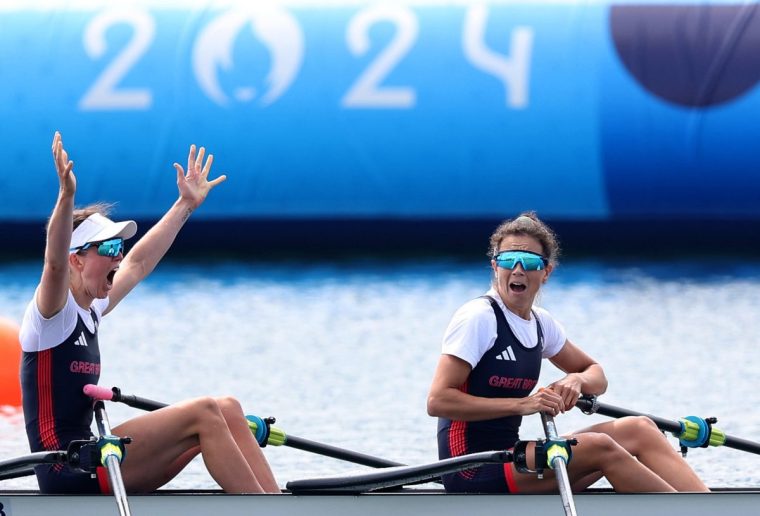Rower Imogen Grant earned Olympic gold in Paris 2024 and now works as a junior doctor – but she is not done yet.
The Cambridge graduate started her medical training less than two weeks after winning her medal in the last-ever lightweight women’s event (57kg crew average) with a dominant performance alongside doubles partner Emily Craig. Their event will not be part of Los Angeles 2028.
While some achieve one dream in a lifetime, Grant achieved multiple in one year, as she was also recently named the BBC Green Sport Awards Athlete of the Year for her advocacy for Britain’s river health.
“I am a normal person who can do extraordinary things,” Grant, 28, tells i.
“I follow what I love and try to speak up about things I am passionate about – whether it is getting people up doing sports or campaigning for our river and water quality in the UK.”
The gold medallist started rowing at Trinity College and she has noticed how rivers have changed in the 10 years since.
Only 14.55 per cent of river water bodies in England are in good ecological health, according to The River Trust.
“It is a sorry state of affairs,” Grant says.
“There’s work to be done, but that can only be done with everybody working together.
“Rivers feed so much of the rest of the landscape, and the rest of the wildlife. If you can get the rivers right, you can get the fields and the parks right and make towns and villages healthier and happier.”
Grant then became vegan after trying it in January 2022 as part of Veganuary and is passionate about maintaining British ecosystems.
“If we lose the rivers, we lose our ecosystems as well,” she adds.
“Participating in the Big River Watch and ordering test kits to do citizen science by conducting water quality tests, are the best things [to do to help] for someone in the community.”
Grant also hopes to use her experiences as an Olympic rower to inspire and help improve patient activity levels in the NHS.
She believes there is a connection between patients’ lack of activity and the erosion of green spaces due to pollution – yet opportunities for outdoor exercise are further reduced due to the effects of that pollution.

“We have an ageing population and an underfunded NHS, so the healthier we can all be, the better shape our country will be in,” she says.
“It has been cool, being a doctor, it is exactly what I expected it to be, there is just a lot of it.
“The NHS is really struggling, there is not a chance to breathe in between jobs, I have had 12-hour-long days, where the longest I have had to sit down is for 10 minutes.”
Grant promised herself after the Olympics in Tokyo 2020 that she would take a break after Paris 2024, before starting her role as a junior doctor. However, the lightweight record-holder in the single and double events started two weeks after competing to provide herself with a purpose.
“I think it was really important for me to have this strong direction for what I doing after the Olympics.
“I am still training hard. I am definitely not done with rowing. I will be coming back as an openweight. It’s going to be an exciting new challenge.”
Grant had faced the decision to retire or change her event, with no lightweight category at the 2028 Games, where the schedule will now incorporate beach sprints.
Yet she competed as an openweight (crews exceeding 57kg average) throughout her time at university and in the Oxford vs Cambridge Boat Race – an event she won three times.
“We will see if I make it to the World Championships [in that weight] next summer because I will be at work during that time.
“But I am interested in what my rowing future looks like.”
Next, she will be looking to compete at the Head of the Charles in Boston at the end of October.
While her sustainability advocacy, full-time job, and upcoming wedding will keep her busy for now, Paris 2024 will probably not be the last time Grant is seen on the international stage.



'President Musk' is flexing his muscles and revealing how weak Trump is